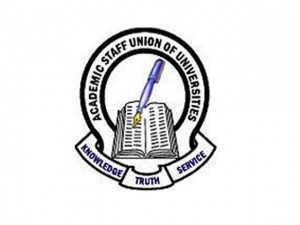 A shimmer of hope seems to have returned to our public tertiary institutions as the Federal Government has reached an agreement with the Academic Staff Union of Universities (ASUU) which has now ended the five month strike called by the latter.
A shimmer of hope seems to have returned to our public tertiary institutions as the Federal Government has reached an agreement with the Academic Staff Union of Universities (ASUU) which has now ended the five month strike called by the latter.
Under the leadership of their President, Dr Nasir Isah-Fagge, ASUU demanded among others, an upward review of the retirement age of its Professors and an adequate funding of about N1.3 trillion to be released between 2013-2018. In the Memorandum of Understanding, N200 billion is to be released in 2013 and a subsequent N220 billion in the subsequent years.
The group stated that this amount was to address the dilapidated state of Nigerian public Universities and the declining quality of education received by students due to its apparent lack of funds and the low priority accorded to education by the Federal Government. The President of the Union disclosed the loss of N60 billion yearly from Nigeria to Ghana from Nigerian students alone.
Some thought that after the passing of Prof. Festus Iyayi, a former ASUU President who was killed in a car crash on his way to an ASUU executive council meeting to resolve the strike, the impasse would have died immediately as there were increased talks with the Federal Government to discontinue the strike. However, the Union was met with anger in some quarters when it refused to suspend the strike weeks after the Professor’s death amidst claims that it had added new terms to the MOU such as the immediate payment of their salaries in arrears in response to the Federal Government’s threat of non-payment of salaries for the period they were on strike. The heat of their just ended action was further inflamed when the supervising Minister of Education, Nyesom Wike announced 9th December 2013 as the deadline of all lecturers to resume work or face a mass sack. In defiance of the government, the body refused to call off its strike and continued to insist on its demands even on the date of the deadline.
The play-out revealed three things. Firstly, that the body whose roots sprung in an overbearing military era was not willing to be succumbed to such high handed approach by the Federal government. Secondly, the Union’s continual strike and government’s reaction raised questions on the rights and limits to the freedom of association as enshrined in the Constitution. Thirdly, the scenario raised discussions on whether the Nigerian Labour laws permit the payment of salaries during a strike period.
As the Central Bank acknowledged the receipt of N200 billion as funding for public tertiary institutions for 2013, it paved way for the Memorandum of Understanding to be signed by the ASUU President and the Permanent Secretary of the Ministry of Education, Dr Mac John Nwaobiala. As the strike was also called off on the 17th of December, it is hoped that the scepticism and mistrust that has long characterised the Union’s relationship with the Federal Government will be replaced by a Government that aspires to accord education with a status it deserves.

